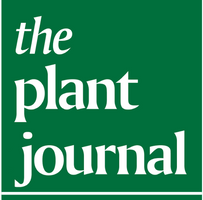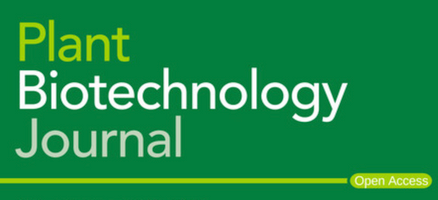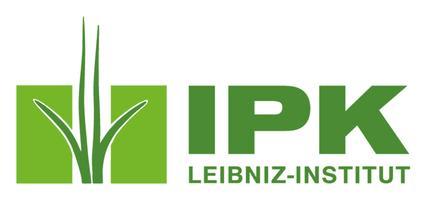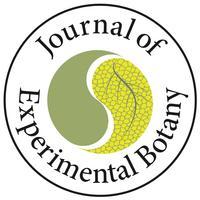Plant
The Session information is all still subject to change
P1 - Advancing Plant Nutrition in the Age of Systems and Synthetic Genetics
Session length
1 day
Session Description
In this thought-provoking symposium session, we delve into the exciting frontier of plant nutrition and its remarkable evolution within the context of systems and synthetic genetics. As our understanding of plant biology continues to deepen, and as cutting-edge techniques in genetics and genomics redefine the boundaries of what is possible, this session explores the pivotal role of nutrition in shaping the future of agriculture, crop improvement, and sustainable food production.
This session has kindly been sponsored by The Plant Journal.

P2 - From Sensing to Remembering: Plants' Responses to Temperature Fluctuations
Session length
0.5 a day
Session Description
In an era of rapidly changing climate, understanding plants' adaptive strategies to temperature fluctuations has never been more crucial. This session will delve into the intricate mechanisms of how plants sense, respond to, and 'remember' temperature changes to enhance their resilience. From the molecular pathways triggered by temperature shifts to the fascinating concept of 'thermomemory,' this session will explore the ways in which plants response to variations in temperature. By shedding light on the latest discoveries in this domain, we aim to offer insights into breeding strategies that could fortify our crops against the unpredictable vagaries of climate.
P3 - Genomic and epigenetic plasticity in plants
Session Length
1.5 days
Session Description
The plant genome is particularly dynamic, with both genetic and epigenetic elements contributing to plasticity and adaptation to environmental changes. This session will bring together studies covering the fundamental mechanisms contributing to (epi)genome plasticity, and how this understanding can be applied to plant responses. The session aims to look for integration of genetics and epigenetics studies, including molecular biology and genomic approaches, and determine how plant (epi)genome plasticity can contribute to improve plant adaptation in a changing environment.
P4 - Nanomaterial-based biosensing in plant and environment
Session length
0.5 days
Session Description
The session will center around nanomaterial-based biosensing as an effective, non-invasive, and non-destructive method for online monitoring of changes in plants and environment, and their interactions. Typically, studies concerning plant-environment interactions provide data from specific time points, which may not offer a comprehensive understanding of how plants respond to fluctuating environmental conditions or stressors. The state of the art plant phenotyping using various non-invasive imaging sensors to describe morpho-physiological changes is mainly based on recording the consequences of plant-environment interaction, but cannot detect and monitor the initial processes triggered to be translated into the resulting phenotype. This is limited to using genetically encoded biosensors in the model plants, mostly using costly and low-throughput microscopic techniques. New nanomaterials-based sensors appear to allow for real-time monitoring of plant characteristics and the conditions in their immediate surroundings. Their use is not species-specific and the nanosensors can be more affordable. During this session, the delegates and selected presenters will showcase their recent achievements in developing these nanosensors, mostly coupled with machine learning technologies. This combination holds the potential to offer a more comprehensive insight into the timing of plant responses and their capacity to endure environmental challenges.
P5 - Novel mechanisms of receptor kinase activation in plants
Session Length
0.5 a day
Session Description
Plant Receptor Kinases (RKs) coordinate a broad spectrum of developmental and defence processes by perceiving environmental cues. RKs are fundamental to plant survival as they facilitate the transduction of apoplastic stimuli into cytoplasmic signalling cascades. Up to this date, only a handful of RKs have assigned ligands, like endogenous or pathogens-derived peptides, cell wall fragments or hormones that induce specific cellular responses. Therefore, we are facing an exciting time for the discovery and functional characterisation of the receptor-ligand pairs. Moreover, the role of different posttranslational modifications, like redox modifications, emerges as a novel strategy to regulate the function of receptor proteins.
P6 - PEPG: Integrating genomics and phenomics for crop improvement
Session Length
1 day
Session Description
Crop improvement efforts must be advanced to meet food and fuel security targets whilst addressing the challenges posed by global climatic change. Genomics technologies have been well-utilised in progressing plant breeding efforts. Recently, the utility of phenomics approaches has become recognised for further advancing crop improvement. This session will highlight the development of approaches and techniques that have relieved the phenotyping bottleneck to substantially benefit crop improvement. We will take an integrative approach to explore how genomics and phenomics can be utilised in unison to practically aid crop improvement and to address fundamental questions in plant biology.
This session has kindly been sponsored by Plant Biotechnology Journal and Phenom Uk


P7 - Translational Plant Biodiversity
Session Length
2 days
Session Description
This session will showcase different approaches used in the field of translational plant biodiversity. Translational biodiversity aims at elucidation of mechanisms underpinning the evolution of plant diversity, and making the generated know-how accessible and applicable to plant breeding and agricultural production. The session will discuss how plant biodiversity can be most efficiently used to improve future crops. We will address key new findings as well as challenges in translation of fundamental results into crop breeding and identify and discuss knowledge gaps and research needs. With the session we aim to establish translational plant biodiversity as a key new approach for crop improvement.
This session has kindly been sponsored by IPK Gatersleben , CEPLAS and Journal of Experimental Botany.












































































